Authors AukeHoekstra
7 days
30 days
All time
Recent
Popular
EVs DO NOT EMIT MORE PM
Recently @OECD published a report about particulate matter (PM) from road transport. Newspaper headlines blared that electric vehicles where worse than combustion vehicles. That conclusion was wrong according to the report itself.
Let me show you.

The report (published december 7) can be found here: https://t.co/1HpicKexOt
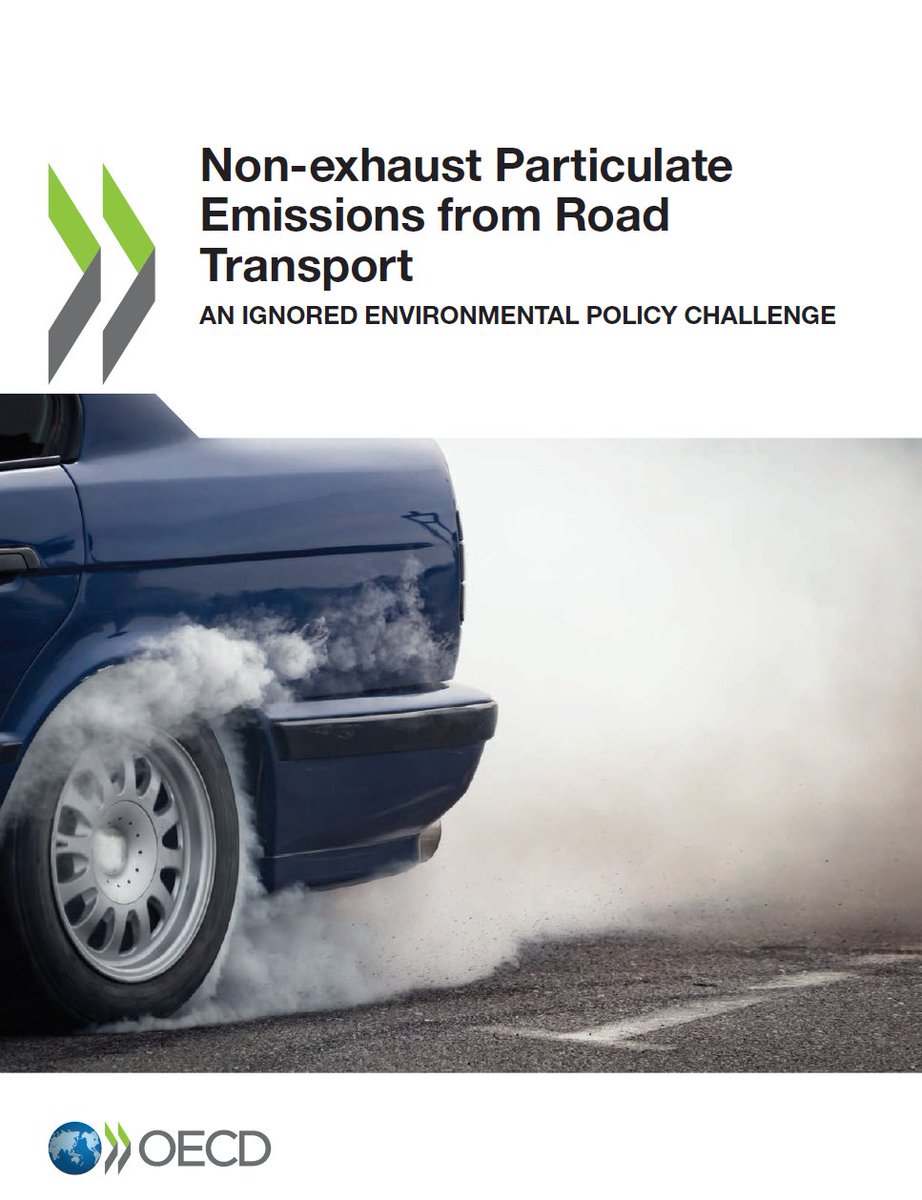
It's main point is well taken: as cars get cleaner, fine particles emitted by brakes, tires and road surfaces will become more important.
The table comparing electric and combustion engines is on page 92. I took averages of low and high values to get the graph in the first tweet.
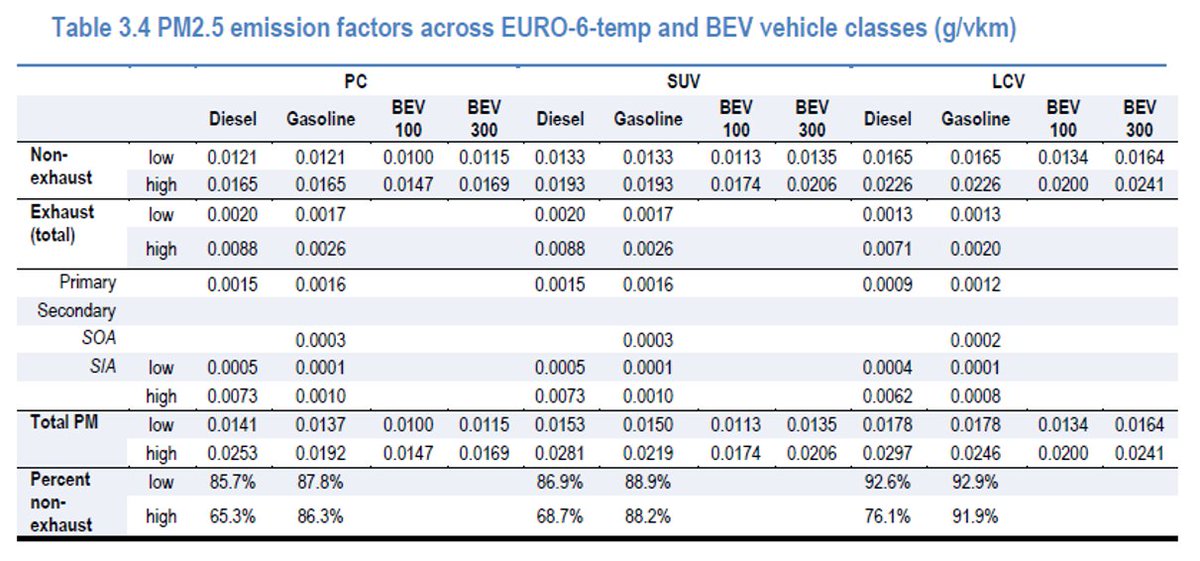
I merely took the averages. To get this.
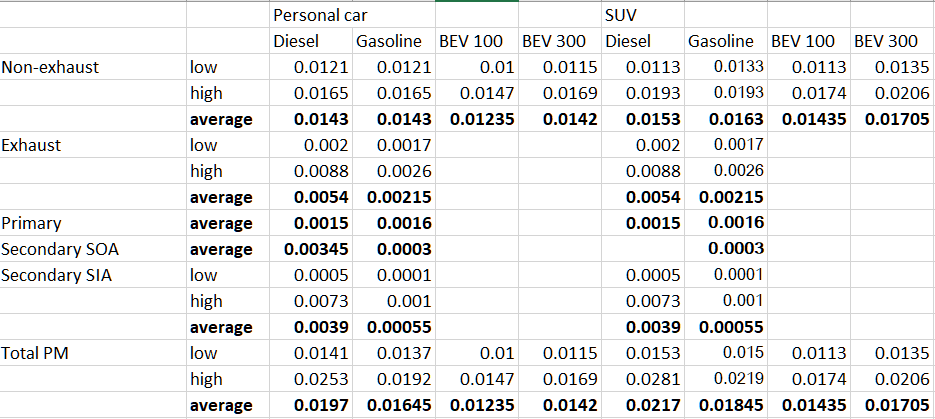
I think it is a terrific report that pulls together a LOT of literature on fine particles that cars spew into the air and that make us sick.
We have ignored this problem for too long, and there's more here than simply exhaust!
Recently @OECD published a report about particulate matter (PM) from road transport. Newspaper headlines blared that electric vehicles where worse than combustion vehicles. That conclusion was wrong according to the report itself.
Let me show you.

The report (published december 7) can be found here: https://t.co/1HpicKexOt

It's main point is well taken: as cars get cleaner, fine particles emitted by brakes, tires and road surfaces will become more important.
The table comparing electric and combustion engines is on page 92. I took averages of low and high values to get the graph in the first tweet.

I merely took the averages. To get this.

I think it is a terrific report that pulls together a LOT of literature on fine particles that cars spew into the air and that make us sick.
We have ignored this problem for too long, and there's more here than simply exhaust!
Some people want us to believe there's not enough solar energy available to cover our worldwide energy needs
They often use EROI (Energy Return On Investment) as their metric
This is a rant against these EROI people misinforming the debate, based on a rebuttal of a 2020 paper
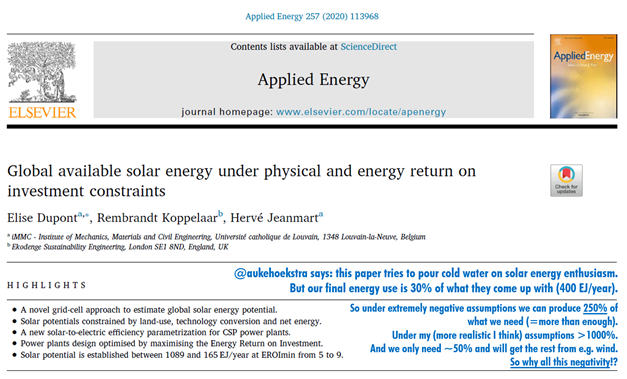
In essence the approach of the paper is straightforward:
1) Discard water and 96% of land because it's supposedly unavailable
2) Assume solar cells on just 1/5th of the remaining 4%
3) Complain that production of solar panels takes a lot of
About 1) (available land)
Discarding 96% of land seems pretty extreme:
30% of the world's land is barren
40% of the world's land is used for meat
I think we could find more than 4% if we tried
(but we don't have to: we need less than 1%)
https://t.co/rJZiNWcu7F
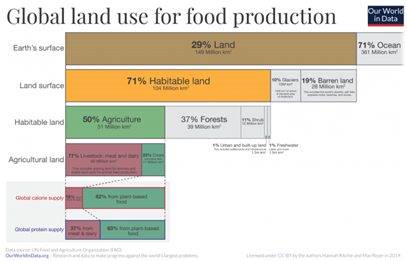
About 2) (using 1/5th of available land)
If cells are expensive and land is dirt cheap, covering 20% with solar cells is logical
But with cheap cells you maximize land use: 80% is easily possible
New paper headline:
"Global available solar energy over 10 times what we need"

About 3) (20% of energy is needed for production)
This is something @MLiebreich and I often complain about:
If you get more energy out than you put it, that's FINE
If you get five times more energy out, that's GREAT
EROI is a USELESS metric. Let's STOP using it. At all.
They often use EROI (Energy Return On Investment) as their metric
This is a rant against these EROI people misinforming the debate, based on a rebuttal of a 2020 paper

In essence the approach of the paper is straightforward:
1) Discard water and 96% of land because it's supposedly unavailable
2) Assume solar cells on just 1/5th of the remaining 4%
3) Complain that production of solar panels takes a lot of
About 1) (available land)
Discarding 96% of land seems pretty extreme:
30% of the world's land is barren
40% of the world's land is used for meat
I think we could find more than 4% if we tried
(but we don't have to: we need less than 1%)
https://t.co/rJZiNWcu7F

About 2) (using 1/5th of available land)
If cells are expensive and land is dirt cheap, covering 20% with solar cells is logical
But with cheap cells you maximize land use: 80% is easily possible
New paper headline:
"Global available solar energy over 10 times what we need"

About 3) (20% of energy is needed for production)
This is something @MLiebreich and I often complain about:
If you get more energy out than you put it, that's FINE
If you get five times more energy out, that's GREAT
EROI is a USELESS metric. Let's STOP using it. At all.
Miracle cure eFuels comes to the rescue of the German car industry! That is what I understand from the recent reactions in German politics. E.g. from @_FriedrichMerz (@CDU) as discussed by @Stefan_Hajek in @wiwo.
Unfortunately, reality is
You see, it IS eminently possible to power the trusted combustion engine with fuels that are produced using low carbon electricity. That's not the problem.
The problem is that you need A LOT MORE ENERGY while propping up an engine whose only advantage is that it can burn stuff.
Let's look at that engine first. Don't get me wrong: Germany should be proud at the heights to which it has taken this extremely complex marvel of engineering. The electric motor is simple by comparison. But also better on all fronts.
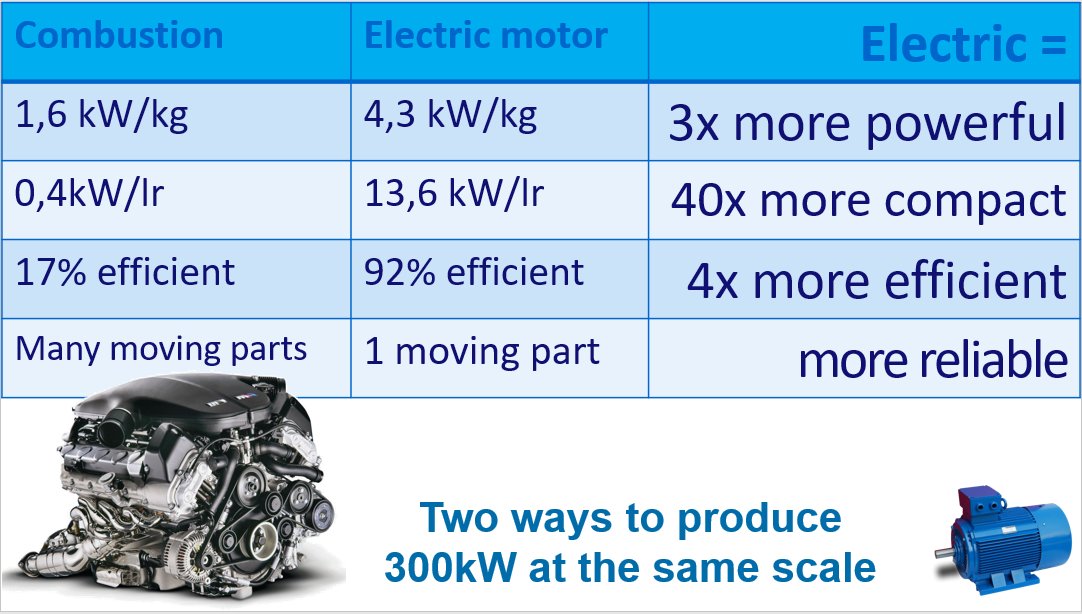
Actually, the higher the overcapacity of the combustion engine in normal use (e.g. for a car that can accelerate quickly) the the bigger the disadvantage of the combustion vehicle. Here the relatively slow and small Porsche already uses six time as much energy.
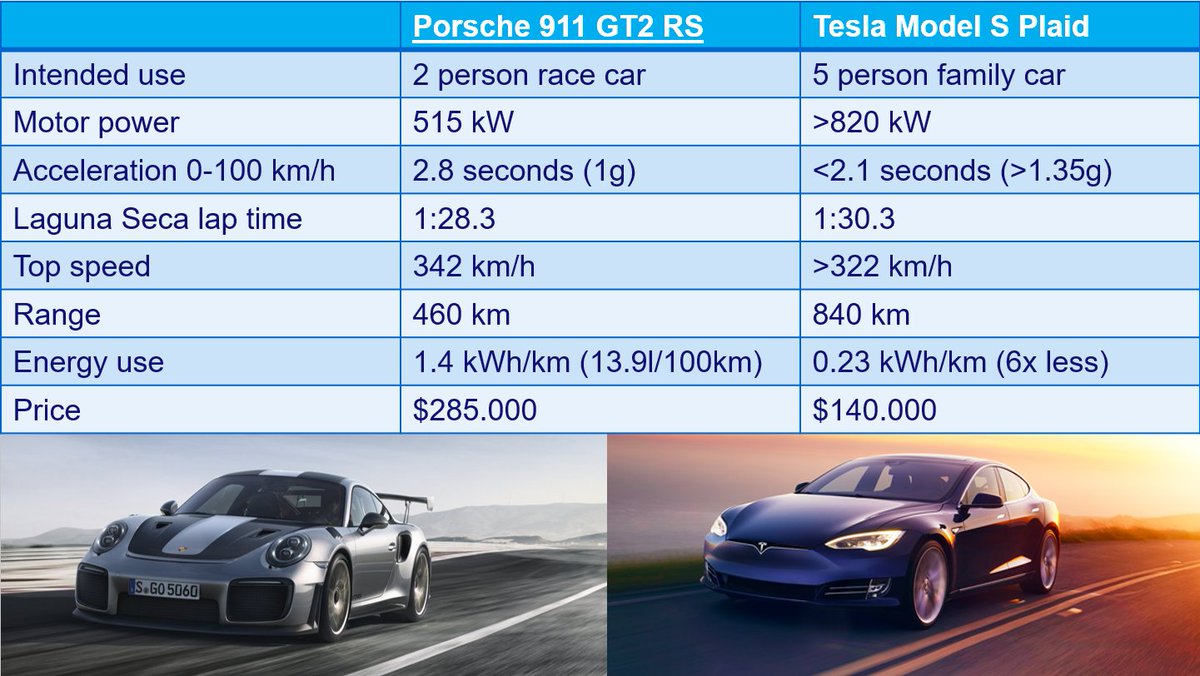
Then there's the losses when producing fuel from electricity. When you add that up you end up with around 87% energy losses versus 73% losses for the electric vehicle. So eFuels need over five times (73/13=5.6) more energy.
https://t.co/8iGbwQiIOY
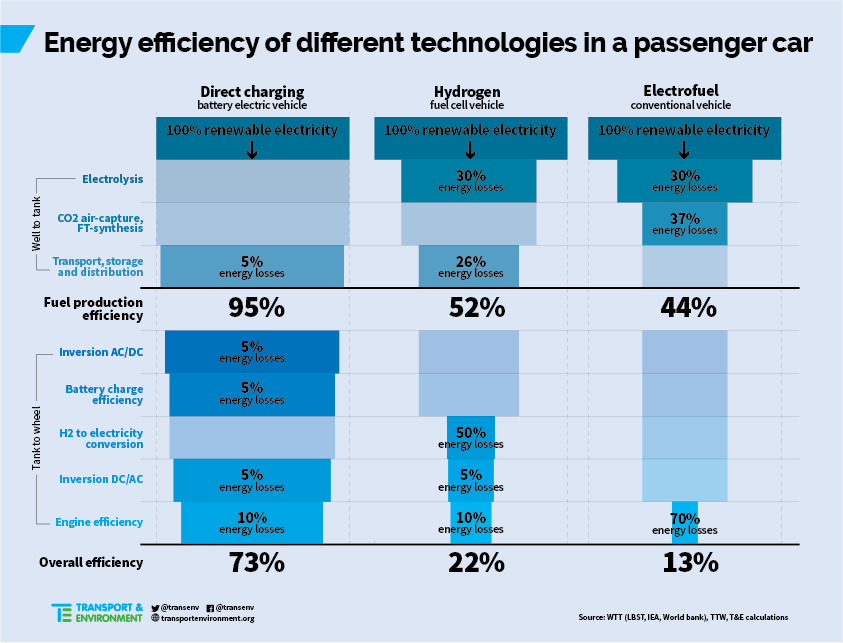
Unfortunately, reality is
You see, it IS eminently possible to power the trusted combustion engine with fuels that are produced using low carbon electricity. That's not the problem.
The problem is that you need A LOT MORE ENERGY while propping up an engine whose only advantage is that it can burn stuff.
Let's look at that engine first. Don't get me wrong: Germany should be proud at the heights to which it has taken this extremely complex marvel of engineering. The electric motor is simple by comparison. But also better on all fronts.

Actually, the higher the overcapacity of the combustion engine in normal use (e.g. for a car that can accelerate quickly) the the bigger the disadvantage of the combustion vehicle. Here the relatively slow and small Porsche already uses six time as much energy.

Then there's the losses when producing fuel from electricity. When you add that up you end up with around 87% energy losses versus 73% losses for the electric vehicle. So eFuels need over five times (73/13=5.6) more energy.
https://t.co/8iGbwQiIOY

I am sick and tired of of people who proclaim anti-renewable nonsense as fact and get away with it.
I think @mattwridley misunderstands @borisjohnson's green agenda on all 10 points but allow me to focus on the points regarding electric vehicles that are my academic specialty. https://t.co/jk2LkEUc5T
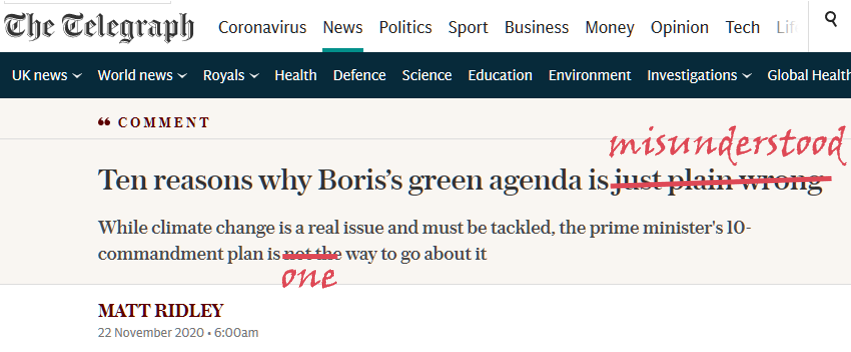
Matt Ridley is a journalist, biologist and viscount who owns coal mines on his family estate. He's (unsurprisingly) pro fossil fuels.

In this piece he gives ten things that are wrong with Johnsons green plans that I think mostly show how wrong he is himself.
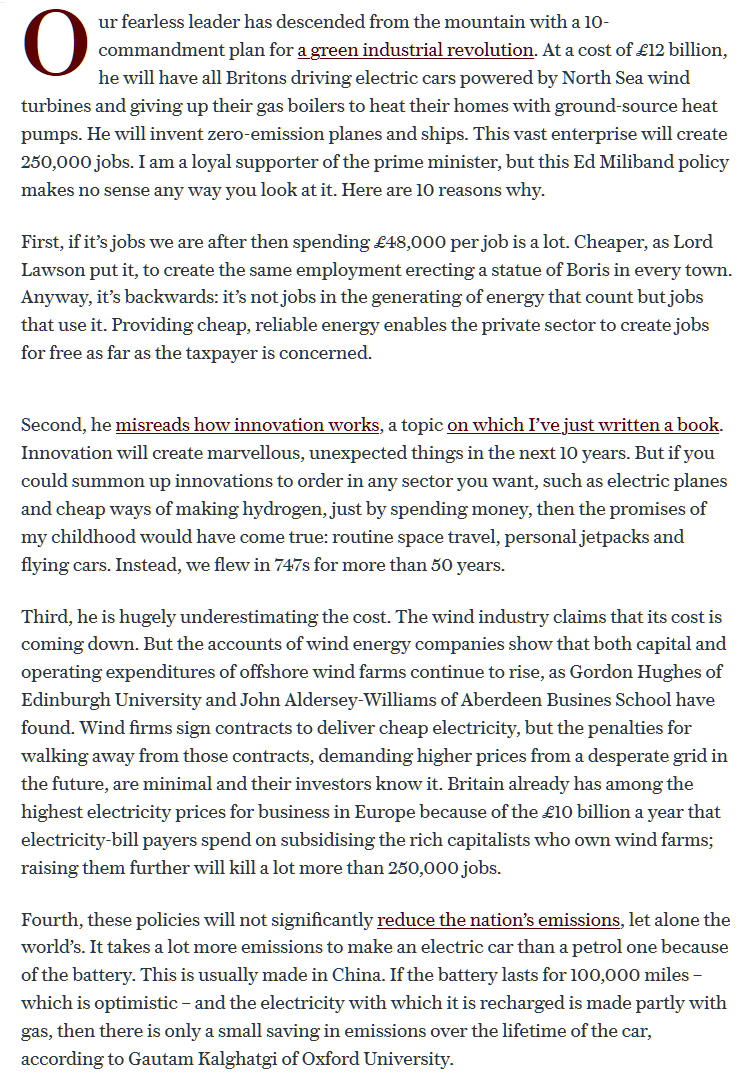
I want to focus on my academic specialty: in his tweet and in his column in the @Telegraph he claims that the electric car emits more CO2 over its lifetime than a diesel car because of the battery production.
Let's look at the facts.

First the claim that the battery lasts less than 100k miles.
Here's the blog from my good friend @M_Steinbuch showing what hundreds of @Tesla drivers measure. And to the right what Tesla reports. Over 300k miles is closer to the truth. No idea where he gets this 100k nonsense.
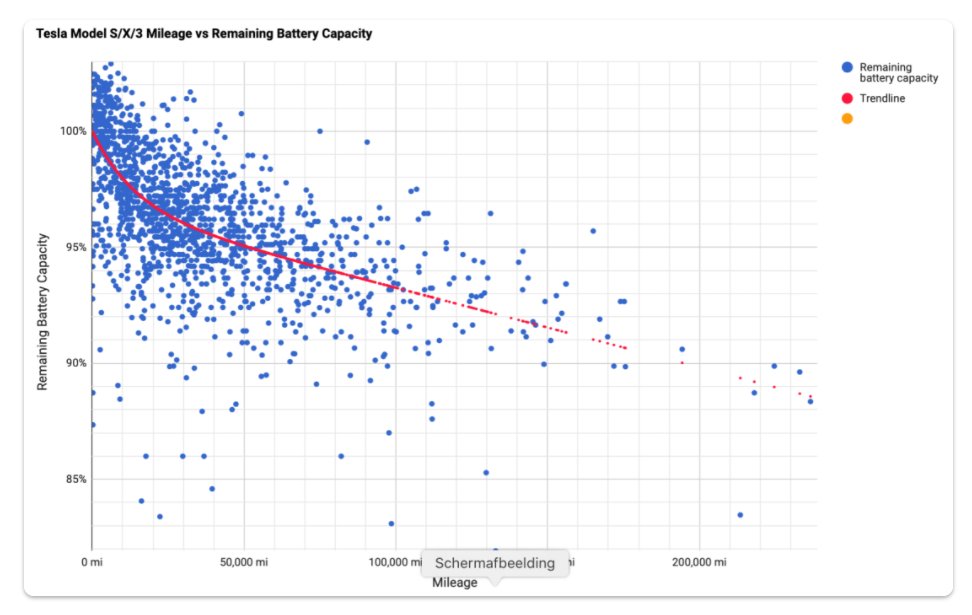
I think @mattwridley misunderstands @borisjohnson's green agenda on all 10 points but allow me to focus on the points regarding electric vehicles that are my academic specialty. https://t.co/jk2LkEUc5T

It takes a lot more emissions to make an electric car than a petrol one because of the battery. https://t.co/BdJxAOaQvr
— Matt Ridley (@mattwridley) November 25, 2020
Matt Ridley is a journalist, biologist and viscount who owns coal mines on his family estate. He's (unsurprisingly) pro fossil fuels.

In this piece he gives ten things that are wrong with Johnsons green plans that I think mostly show how wrong he is himself.

I want to focus on my academic specialty: in his tweet and in his column in the @Telegraph he claims that the electric car emits more CO2 over its lifetime than a diesel car because of the battery production.
Let's look at the facts.

First the claim that the battery lasts less than 100k miles.
Here's the blog from my good friend @M_Steinbuch showing what hundreds of @Tesla drivers measure. And to the right what Tesla reports. Over 300k miles is closer to the truth. No idea where he gets this 100k nonsense.

